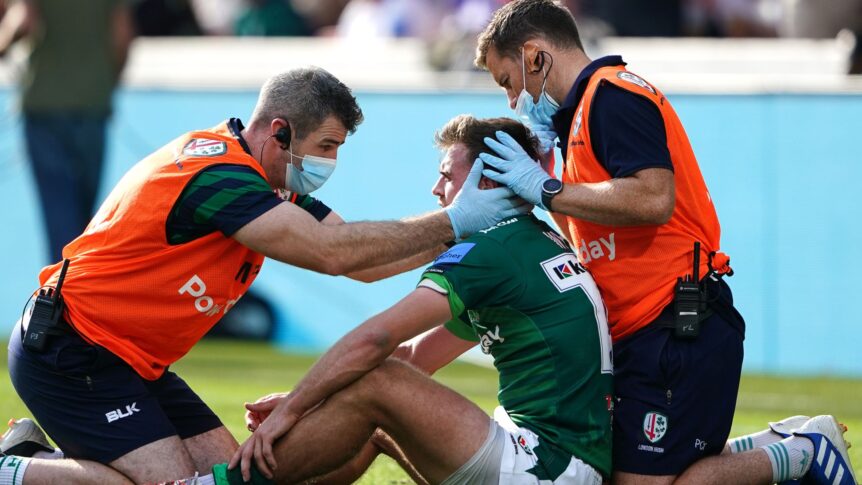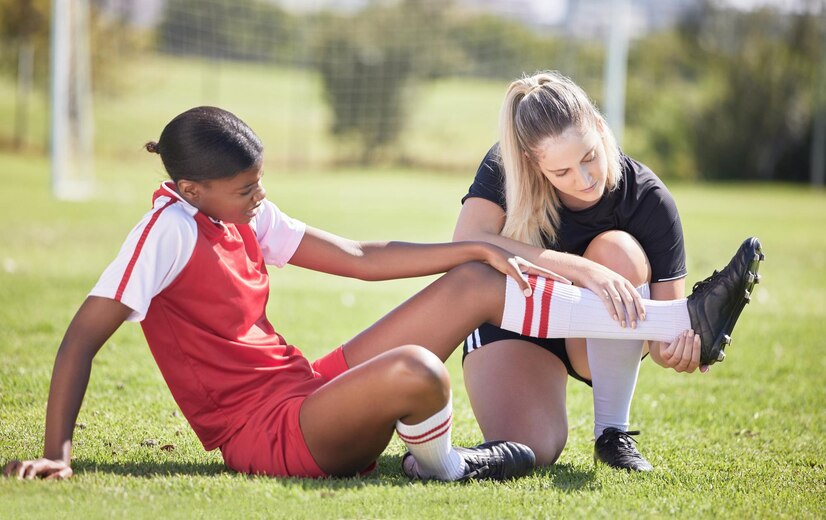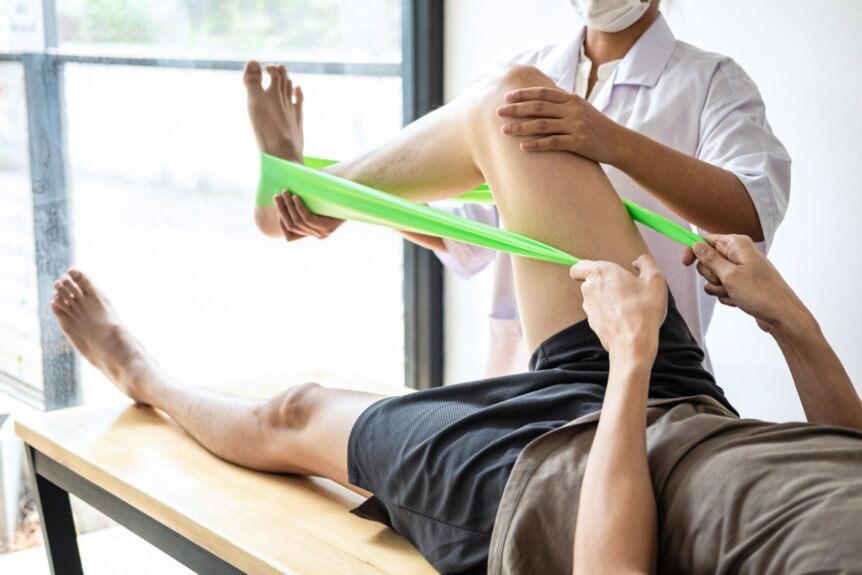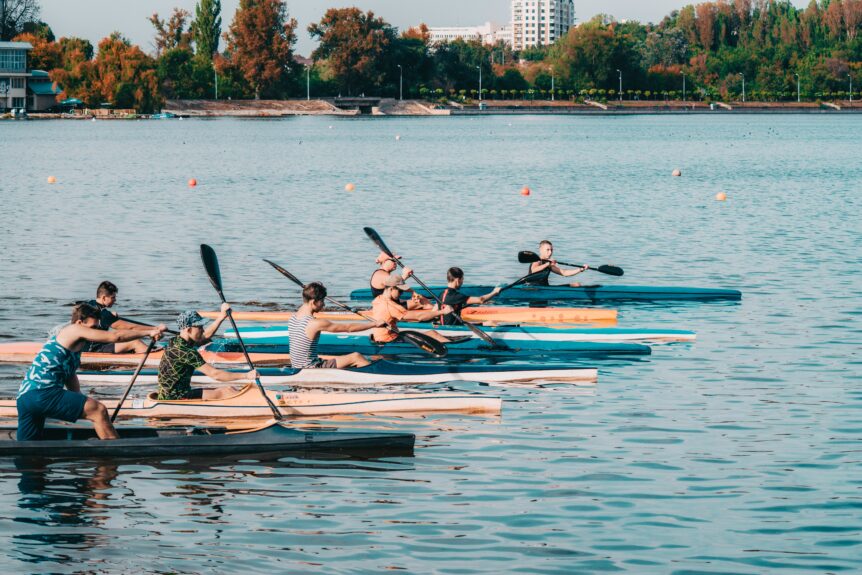Patricios, J. S. et al. Br. J. Sports Med. 57, 695–711 (2023). For over two decades, the Concussion in Sport Group has held meetings and developed five international statements on concussion in sport. This 6th statement summarises the processes and outcomes of the 6th International Conference on Concussion in Sport held in Amsterdam on 27–30 October 2022 and should be …
A systematic literature review of injury epidemiology and surveillance practices in elite adult female field-based team sport
Gilhooly, M., Cahalan, R., O’Sullivan, K. & Norton, C. . J. Sci. Med. Sport 26, 301–308 (2023). Objectives: To describe injury incidence and surveillance practices in elite adult female field-based team sports. Design: Systematic literature review. Methods: This review was prospectively registered (PROSPERO CRD42022318642). CINAHL, PubMed, MEDLINE, Scopus, SPORTDiscus, Web of Science, Open Grey and Google Scholar were searched from …
Can we really say getting stronger makes your tendon feel better? No current evidence of a relationship between change in Achilles tendinopathy pain or disability and changes in Triceps Surae structure or function when completing rehabilitation: A systematic review
Murphy, Myles C., et al. Journal of Science and Medicine in Sport (2023). Objectives: Determine if improvements in pain and disability in patients with mid-portion Achilles tendinopathy relate to changes in muscle structure and function whilst completing exercise rehabilitation. Design: A systematic review exploring the relationship between changes in pain/disability and muscle structure/ function over time, following the Preferred Reporting Items …
Exertional Heat Stroke and Rhabdomyolysis: A Medical Record Review and Patient Perspective on Management and Long-Term Symptoms
Kruijt, N., van den Bersselaar, L.R., Hopman, M.T.E. et al. Sports Med – Open 9, 33 (2023). Background: Sudden cardiac arrest (SCA) during sports can be the first symptom of yet undetected cardiovascular conditions. Immediate chest compressions and early defibrillation offer SCA victims the best chance of survival, which requires prompt bystander cardiopulmonary resuscitation (CPR). Aims: To determine the effect of rapid bystander CPR …
Acute and Chronic Performance Enhancement in Rowing: A Network Meta-analytical Approach on the Effects of Nutrition and Training
Held, S., Rappelt, L. & Donath, L. Sports Med 53, 1137–1159 (2023). Background This systematic review and network meta-analysis assessed via direct and indirect comparison the occurrence and magnitude of effects following different nutritional supplementation strategies and exercise interventions on acute and chronic rowing performance and its surrogates. Methods PubMed, Web of Science, PsycNET and SPORTDiscus searches were conducted until …
Quantifying the Extent to Which Successful Juniors and Successful Seniors are Two Disparate Populations: A Systematic Review and Synthesis of Findings
Güllich, A., Barth, M., Macnamara, B. N. & Hambrick, D. Z. Sports Med 53, 1201–1217 (2023). Background To what extent does the pathway to senior elite success build on junior elite success? Evidence from longitudinal studies investigating athletes’ junior-to-senior performance development is mixed; prospective studies have reported percentages of juniors who achieved an equivalent competition level at senior age …
Relationships between food insecurity, physical activity, detachment from studies, and students’ well-being: A prospective study
Isoard-Gatheur et al. Scandinavian Journal of Medicine and Science in Sports – 2023 early access Research on students’ well-being has shown that studies may have an impact on well-being. However, this relationship is complex and involves many other parameters (e.g., food security and physical activity). Therefore, the objective of the present study was to investigate the relationships between food insecurity …
Exercise in Octogenarians: How Much Is Too Little?
Carrick-Ranson, G., Howden, E. J. & Levine, B. D. Annu Rev Med 73, 1–15 (2021). The global population is rapidly aging, with predictions of many more people living beyond 85 years. Age-related physiological adaptations predispose to decrements in physical function and functional capacity, the rate of which can be accelerated by chronic disease and prolonged physical inactivity. Decrements in physical …
The Psychology of Athletic Tapering in Sport: A Scoping Review
Stone, M. J. et al. Sports Med 53, 777–801 (2023). Abstract Taper is a common training strategy used to reduce fatigue and enhance athletic performance. However, currently, no review has summarised what psychological research has been conducted examining taper, what this research shows and what future research needs to be undertaken to extend the field. Consequently, a scoping review was …
Benefits and barriers to physical activity among African women: A systematic review
Obit et al, Sports Medicine and Health Sciences, 5 (2023), 59-66. Black women have always been likened to being a less physically active group compared to women of other races/ ethnicity, with reports of a high prevalence of obesity and other cardiometabolic diseases among them. The purpose of this study is to examine the health benefits of physical activity on …










